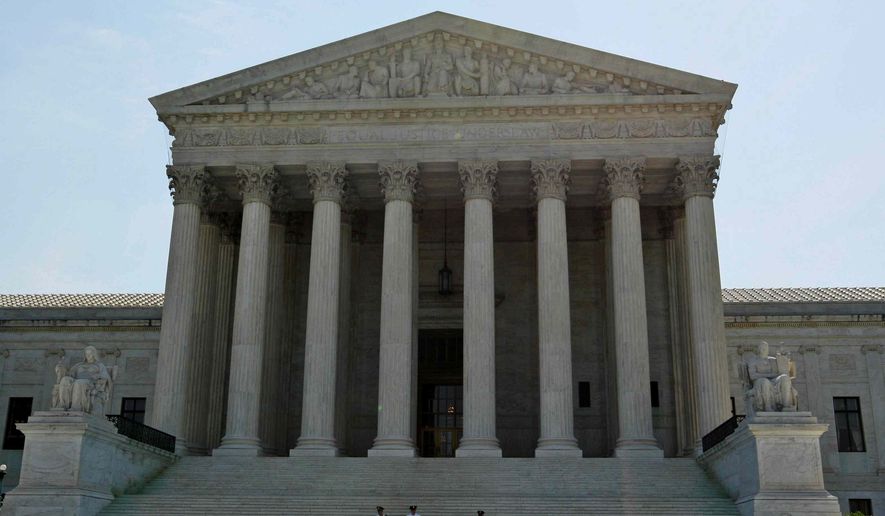Federal employees shouldn’t be fired for blowing the whistle on something that could threaten public safety, the Supreme Court ruled Wednesday.
In the 7-2 decision in DHS v. MacLean, the court ruled that Robert MacLean, a former federal air marshal, shouldn’t have been fired from the Department of Homeland Security for revealing that marshals were being pulled from flights in 2003. Due to budget concerns, for nearly two months the law enforcement agents were kept off flights deemed high-risk targets for terrorist attacks.
“MacLean rightfully acted on behalf of the public, and protested the shoddy plan to a supervisor and three DHS Office of Inspector General field offices, all of whom declined to act and said he should drop the issue,” said the Government Accountability Project, a whistleblower advocacy group.
After Mr. MacLean leaked his concerns about security to the press, he was fired by DHS.
But the Supreme Court ruled Wednesday that Mr. MacLean had acted in accordance with a specific U.S. law that “protects employees who disclose information that reveals ’any violation of any law, rule, or regulation,’ or ’a substantial and specific danger to public health or safety.’”
Federal employees are forbidden from whistleblowing where prohibited by law, but the Supreme Court ruled that Mr. MacLean did not violate any laws, just agency regulations.
Tully Rinckey, a D.C. law firm that often represents federal whistleblowers, lauded the court’s decision.
“The Supreme Court just delivered a reality check to agency leadership,” the firm said in a statement. “If you want to run an agency, be prepared to hear from employees who, thanks to today’s decision, can blow the whistle on government fraud, waste and mismanagement without fear of retaliation justified by semantics.”
• Phillip Swarts can be reached at pswarts@washingtontimes.com.




Please read our comment policy before commenting.